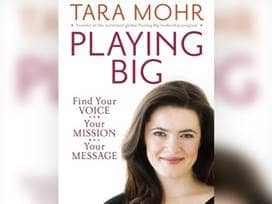A few years ago, I came across a teaching by Rabbi Alan Lew that completely changed how I understood fear. The Hebrew Bible uses two different words for fear, Rabbi Lew explained. The first word is pachad, which is “the fear of projected or imagined things,” “the fear of the phantom, the fear whose object is imagined.” Pachad is the over-reactive, irrational fear that stems from worries about what could happen, about the worst-case scenarios we imagine.
Most of us are familiar with pachad. It shows up as the fear that you’ll horribly embarrass yourself, that the plane is about to crash, that you’ll say something stupid, that this time the truth that you have no talent at your job will be revealed, and so on. It’s what we try to help our kids move past or be brave in the face of. Thousands of years before neuroscientists discovered the over-reactive nature of our fear instinct, it shows up, with its own unique term, in the Old Testament. But there’s also a second word used for fear there, “yirah.” Yirah has three meanings:
1. the feeling that overcomes us when we inhabit a larger space than we are used to.
2. The feeling that we experience when we suddenly come into possession of considerably more energy than we had before.
3. What we feel in the presence of the divine.
Oh. That.
When I first read about this second kind of fear, yirah, I thought of so many conversations I’d had with coaching clients and dear friends, and those special moments when they’d articulate what they really wanted in their lives, what they felt called to. For a moment, there would be a miraculous sense of truth and sacredness in the air. Then, the fear cloud would pass over, and they’d say something along the lines of, “but I’m scared!” I had always treated this as, what, in Rabbi Lew’s terms, we’d call pachad--the regular old fear that comes up when we leave the comfort zone of the familiar and take the emotional risks that come with playing bigger. But I came to understand they were moments of that sacred feeling, yirah.Experiences of sharing our voices, pursuing a passion, telling our deep-down truths—all of these cause us to feel yirah. Differentiating between the two types of fear is so helpful because they each call for very different responses in us. Pachad usually leads us astray, because, by definition, it is the fear of threats that feel very real but aren’t. When we feel pachad, we need to work on shifting away from responding out of fear, so that pachad doesn't dictate our actions. When we feel yirah, by contrast, we want to simply welcome it, feel it fully, and savor it. We even want to move towards those experiences that bring us yirah.


